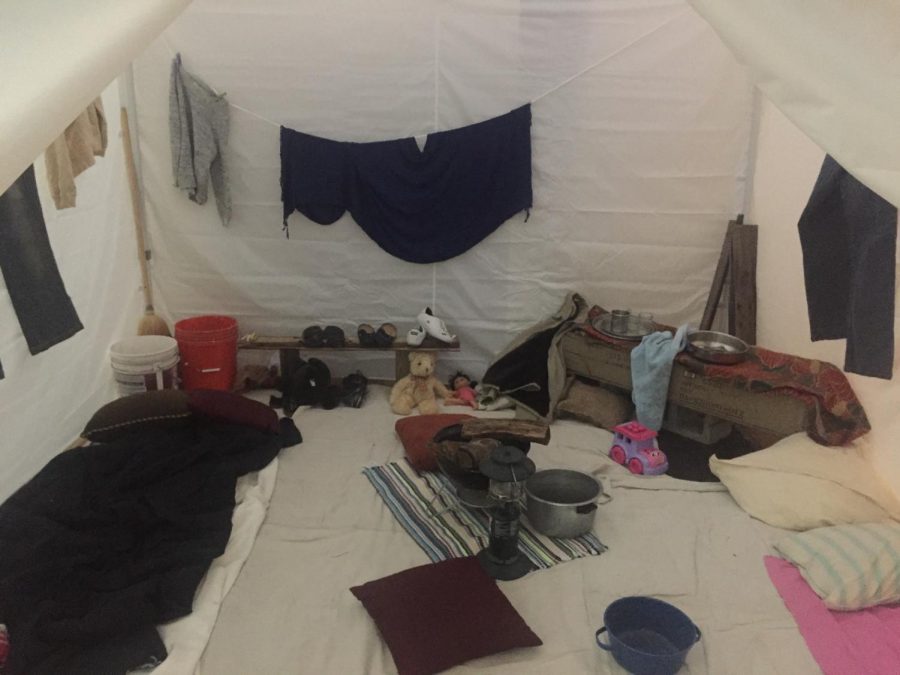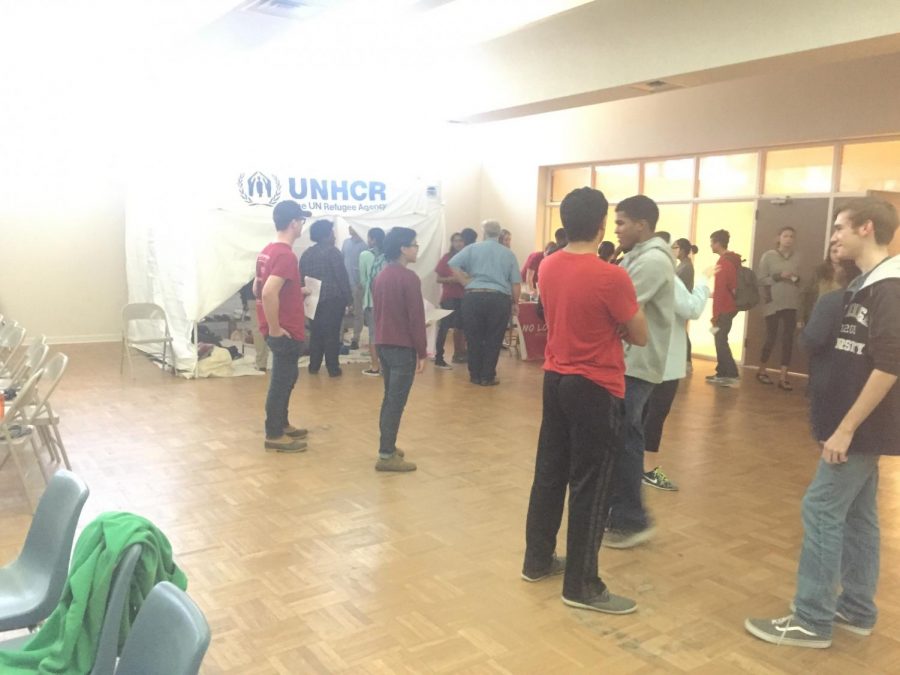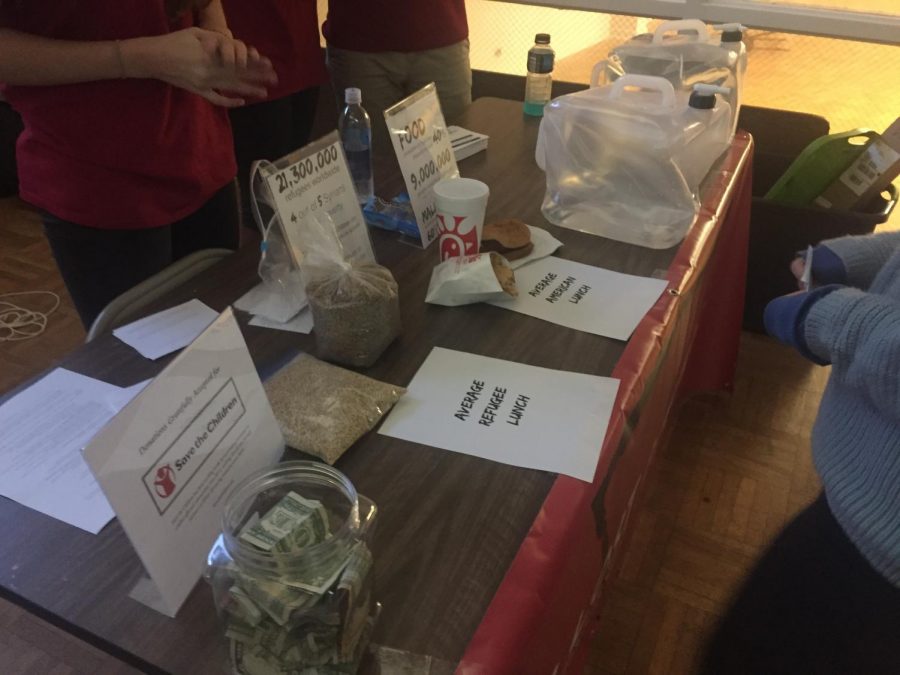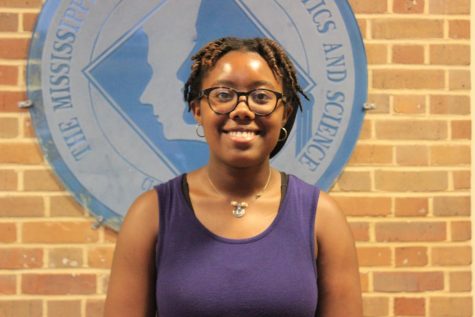MSMS Gets Glimpse into Life of Syrian Refugees
MSMS Forgotten Stories and MSU sponsor a Syrian Refugee Stimulation in the upstairs of Hogarth.
November 13, 2017
Students at the Mississippi School for Mathematics and Science and Mississippi University for Women were able to experience what it was like to be a Syrian refugee on Wednesday, Nov. 8, in Hogarth.
The uprisings in Syria started in 2010-2011 and extended to Egypt, Libya, Bahrain, and Yemen. The Syrian army and government began to intervene. Hundreds of people began dying because of the fighting while alliances and rebel groups quickly formed therefore resulting in the emigration of refugee groups.
The Syrian refugee simulation seminar was created to showcase the hardships that millions of refugees go through on a daily basis. This event was co-sponsored by the MSMS Forgotten Stories Club and the MUW Leadership Program and was presented by Mississippi State University Chapter of No Lost Generation.
The mission of Forgotten Stories is to raise awareness and funds for the people of the world that are experiencing some form of oppression but are hardly ever receiving enough news coverage. They plan to inform the residents of MSMS and the community of such global tragedies and to get them involved as much as possible. The mission of the No Lost Generation is mobilize students to respond to the Syrian refugee crisis.
Senior Reyhan Grims, member of Forgotten Stories, said, “Forgotten Stories plans to help the Syrian Refugees by raising awareness and doing fundraisers in the form of movie showings, trivia nights, and presentations. Through our efforts, we plan to donate the money we raised to trusted charities that will provide the refugees with food, water and better living conditions.”
Students had the chance to talk to different students from MSU about the Syrian Refugee Crisis and see how many of the people live. The MSU students set up a tent, which showed how an average family in Syria lived. The tent included two cots and a handful of clothing and miscellaneous objects laying around that the refugees have.
While touring the simulation, students were given a sheet of paper with a testimony from a refugee. One testimony was from a man in South Sudanese in Kenya name Malek:
“I am a 24 year old man living in Kakuma Refugee Camp. I decided to move from the shelter of the family i was staying with at the camp to a common reception area for refugees. Here, both sexes sleep in the same place, in houses that have dusty floors, and doors that do not shut. The walls have holes that leak if it rains, so that the floor soaks water, which takes ages to dry. The life of a refugee is not easy. What I would say to people who work with refugees is that they should be patient enough to listen with care to what we have to say. Many refugees feel their needs and views are not considered.”
The students were also shown a virtual reality device that showed them Syria and how many of the people and kids lived.
“It puts you above a car and shows you the left and right of the rod and you see kids playing and how the land looks,” senior Chance Green said.
The MSU students explained to everyone how it is not exactly safe for kids to go to school, but they sometimes have the opportunity. If they make it then they are able to go to a refugee camp where they are able to get help from someone. These camps are supposed to only last up to two years as a limited solution, but it didn’t always end up that way.
The students also explained to everyone at a booth how the rationing situation for the refugees goes. Comparing the water for a typical American shower with how much the refugees are given shows us how hard the refugees have it. About one-fifth of the water of a typical American shower is how much the refugees are given in the camps.
Students were also shown the amount of food that the refugees are given. When compared to a typical American meal of Chick-fil-A, the refugees are not given much. Their food rationing is equivalent to a quart size bag of brown rice.
Dr. Hester, the sponsor for the MSMS Forgotten Stories Club, said, “It was a really neat way to see how it feels to be a refugee and to understand the mission of Forgotten Stories.”
MSMS students, Faith Ivy and Brenna Herd explained how they were changed by attending the refugee stimulation. Ivy said, “It made me realize how life is in other countries.”
“It made me realize how good we have it in the United States,” Herd added.











